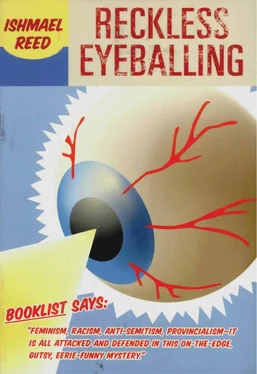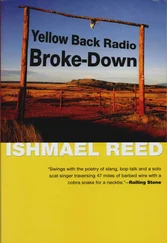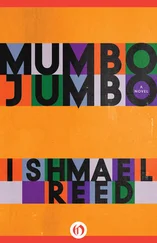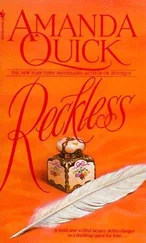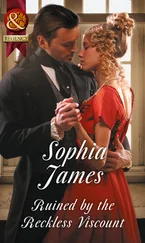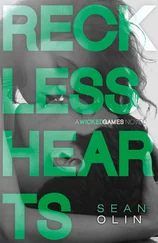“The reason I called is because I have some good news. We’re taking your play to Broadway. Several producers have expressed interest. We have to see which one will give us the best deal. Perhaps you realize now why it was important to change the play so that Cora Mae’s viewpoint condemned both Ham and his lynchers. That one can be murdered by reckless eyeballing just as easily as with a weapon. It’s the same thing. Congratulations, Ian. I never told you this, but after Jim came up missing I wasn’t even going to give you a workshop, but Tremonisha argued on your behalf. You owe her one, Ball. You’ll be pleased to know that now you’ll be able to work anywhere in this town.” Ball jumped up from the table where he was having breakfast. Broadway. People in mink coats arriving from the suburbs. Chartered buses in front of the theater. Interviews. Women. Gol-lee, he said to himself. He was becoming “bankable.” Producers would be lining up. Three-hour lunches. Talk shows. People magazine. Parties. If only Chester Himes and Jake Brashford were less controversial, more amiable, more toned down. If only they had cooled it. They could have had all of this too.
He dialed Brashford’s number. He wanted to tell him the good news. He was sure that Brashford had gotten over his hangover by now. He identified himself to the speaker on the other end. A woman.
“Oh, yes. I saw you last night. I was with my husband.” So the woman with what James Fenimore Cooper called “tartar cheeks” was Brashford’s wife. “He’s really sorry for the way he behaved. He said that he will make it up to you somehow. He was really not himself. The lawyers have gone down to bail him out of jail.”
“Jail?”
“Yes. After the security guard took him outside, Jake managed to get free. He knocked the security guard cold with one punch. Then the police arrived. He got into a slugging match with the officers. I’ve never seen him like that. It all started at dinner. He went through three bottles of wine. The reason we were only able to catch the last act of your play is because he spilled the wine on his pants in the restaurant and then had to go home and change. When he got to his studio he started to drink again and went into some anti-Semitic tirade, which is what always happens when he’s drunk or feeling sorry himself. It’s crazy because I’m Jewish and he has a Jewish son. I think it’s the play that’s making him this way. He’s trying to write a play of universal values, but everywhere he turns, he runs into ethnicity. For twenty years he’s been hopping from group to group. He must have tons of discarded drafts in his closet. For the last year it’s been the Armenians, now he’s talking about doing the Jews. He’s so depressed these days, Ian. He’s so lonely. He’s like the trumpet player in that movie Young Man with a Horn who was seeking the ultimate high note. For Brashford that high note is universality. It keeps eluding him. The blacks of his generation avoid him and the younger generation has never heard of him.” I’m hip to that, Ball thought.
“Of course, Ms. Brashford—”
“You can call me Delilah.”
“And you can call me Ian, Ms. Brashford. Don’t you worry about my abandoning Jake. Why, he’s my Immamu, my guide, my shaman, and my guru. Ms. Brashford, Jake is, well, like a father to me. Everything I know, I learned from him. He taught me how to survive in this city, me, a poor country boy. I’ll always be grateful, and Delilah, where I come from the saying goes you love your friends and you hate your enemies.”
“That’s so sweet of you, Ian. Jake always told me that you were his best friend.”
“Did he say that, Delilah?”
“He says it all the time. He’ll probably talk to you when he returns from abroad, Ian. We’re leaving as soon as he’s out of jail. I think that we need a vacation. We both agree that he needs a change of scenery. He says that on some days he just feels like taking his four volumes of Malraux, his Duke Ellington records, his Motherwells, and his Complete Plays of O’Neill and going to live in a coal bin.”
“Where do you plan to go?”
“We’re leaving tomorrow for Tel Aviv.”
It had been a dense morning for Ian.
Jim, Randy Shank, and now Brashford. Jim thought that the whole country was like New York and as soon as he left Manhattan he wandered into an obeah zone. The wrong neighborhood. Lost in the night. Randy Shank, appropriate that his ending came as it did. Sometimes he was the son of a gun, a loud, belligerent, talking hot dog, but his real bullet was a flower, as evidenced in his early poetry, lyrical, tender. Driven from Europe by Tremonisha and Johnnie Kranshaw’s bad-mouthing, marked as a man who would go to any lengths for sex. Brashford, isolated, yammering about the theft of black culture by the Jews, condemned to wander from ethnicity to ethnicity until he was left with the very group he roiled against. Maybe these city guys were right about him, Ball thought. Maybe he was acceptable because he was from the South and therefore viewed as a genteel and “slow-to-anger” person. Those northern blacks had reputations all over the hemisphere as those who would stand for no gunk. But no one was listening to them anymore. The people in the United States were tired of hearing about their apartheid and so imported the apartheid from abroad. They sent relief money to Africa without so much as a glance at the thirty million or so who went to bed at night hungry in the U.S. So audiences applauded Master Harold and the Boys because this was about somebody else’s apartheid and they could laugh and attend matinees because nobody was pointing the finger at them. Maybe he was just another insouciant import. Maybe they felt that as a Southerner he would look back to the old days when the darkies articulated their words very slowly and carefully. How did that ad for Jamaica put it: “Come back to the way things used to be,” uttered by an old black man, beckoning. It didn’t bother Ball what reasons were given for pushing him, he just wanted success, as his second-sighted mother used to say, “Boy, your eyes are bigger than your belly.” And what about Tre, and the rest of America’s black sisters? He could understand their bitterness, and their hurt. Extras in a land where Anne — the American white woman — had the leading role, her smiling face on the products, the covers of magazines, the ubiquitous face (it was the 1980s and the demand for black models was now on the decrease, while that for Swedish types was on the increase). It was miraculous that so many were able to maintain their poise and their sanity and not go off the deep end like Toni Case Bambara’s Velma, who had to “undergo a riding.” Velma, who got so fed up with the boy-men in her life that she growled. The black women were objects of scorn and desire, like Toni Morrison’s Sula, who wanted to be free as any man, in a time when a woman who smoked cigarettes or sat in bars was regarded as a witch. If sometimes the fellas viewed some of them as hostile, perhaps their hostility was merely a defense mechanism.9
He could understand Clotel, getting it from both sides, neither black nor white but Anne and Coretha in one. And what about Anne? What if women were harming themselves, mutilating themselves, and risking bad health to look like you? The black ones, ninety percent of whom risked baldness by straightening their hair? The Asian ones having the slants removed from their eyes by plastic surgery, and the doctors rearranging the bones of the Jewish women’s noses with mallets. No wonder Becky was so haughty, so demanding, and so full of herself. People were undergoing torture in order to look like her. He could understand the women, Ball could, and Tre had taught him to communicate to a woman without having to devise tedious strategies for getting them into bed. Tre had taught him that there was more to a woman than a cunt. Much more.
Читать дальше
